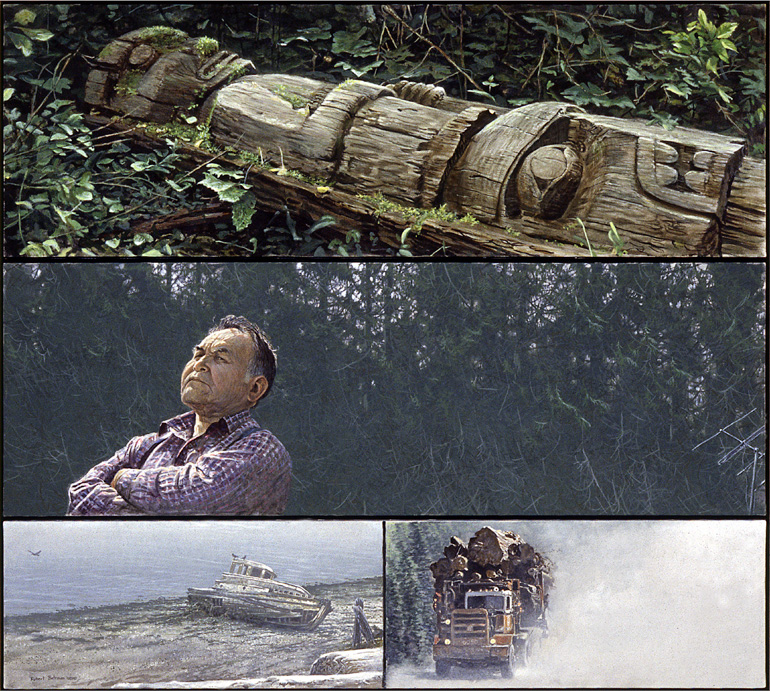- Vancouver Island Elegy
- (scroll down for description)

- 42" x 46 1/2", acrylic on canvas, 1989
Vancouver Island Elegy is another cry of protest about the state of the environment, but it also focuses on my long-standing interest in different and time-honoured ways of life, particularly those that unfolded in harmony with nature. The top image displays an old totem pole of the kind found all along the Pacific coast. It resembles the coffin of a dying culture, a culture which, at its height, produced art to rival anything of Rembrandt's or Picasso's.
- In the middle, I have shown an Indian elder, a representative of the old way of life. I saw him on Vancouver Island at a gathering of natives and non-natives united in their opposition to clear-cut lumbering (the wholesale cutting down of forests when only the big old trees are wanted). The elder's face spoke powerfully to me of the vanishing of the old ways. This perception was heightened when one of the speakers, the tribal chief, told us the younger generation is not interested in their traditions -- they are preoccupied watching sitcoms or rock videos on television. (I've made a reference to this by painting a TV aerial in the background.) In the bottom left-hand corner is an abandoned Indian fishing boat. Traditionally, the Indian tribes along the west coast depended upon fish for survival, but today, commercial fishing is so sophisticated that the Indians can't compete. Even if they could, industrial fishing methods have left their traditional fishing grounds depleted.
- On the lower right is a logging truck representing an approach to nature very different from that of the native North Americans. The logs on this monster are uniform in species and size, part of a plantation put in after an old-growth forest has been cleared out.
- Taken from "Robert Bateman: An Artist in Nature" pages 171-2
